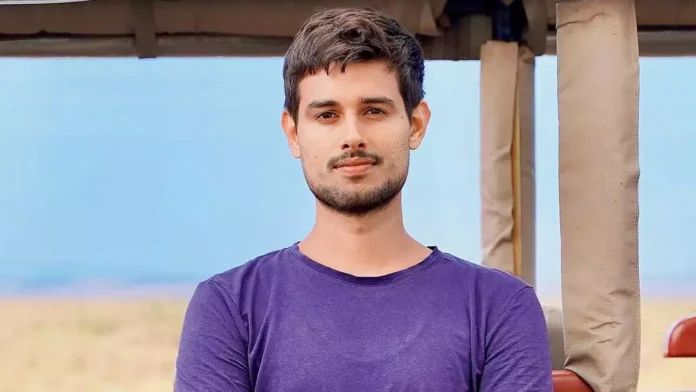Dhruv Rathee, a popular Indian YouTuber, has made a name for himself with his thought-provoking content on politics, social issues, and environmental concerns.
In one of his recent videos, he poses a haunting question: “Is India becoming a dictatorship?” With his signature collarless shirt and knowing smile, Rathee dives into the complexities of India’s democracy, highlighting allegations of corruption, institutional misuse, and democratic process subversion under Prime Minister Narendra Modi’s government.
As a 30-year-old YouTuber with over 28.7 million subscribers, Rathee’s opinions carry significant weight. Born in Rohtak, Haryana, India, he pursued mechanical engineering and renewable energy in Germany. His YouTube journey began in 2014, initially focusing on travel videos before shifting to political and social commentary.
Rathee’s content often sparks intense debates, and his critical views on the Indian government have attracted praise and criticism. Despite the controversy, he remains committed to fact-checking and explanatory content. With multiple channels, including Dhruv Rathee Vlogs and Dhruv Rathee Shorts, he has expanded his reach across platforms.
It’s an intense 29-minute video, packed with Rathee’s monologue, slick animations, and infographics, as he accuses the Modi government of systematically attacking the media and opposition. Issues like the year-long ethnic violence in the northeastern state of Manipur, where more than 200 people have been killed, have disappeared from the public discourse, Rathee says.
Like the music and animated caricatures he uses to support his arguments, Rathee’s picture of India is grim. It is a portrait far removed from the success story that Modi and his team insist they have turned the country into a nation with growing global clout on the cusp of a $5 trillion economy.
As India’s giant national election, with 970 million eligible voters, winds towards its conclusion, with the final phase of voting scheduled for June 1, and results on June 4, nowhere has that clash of narratives played out more sharply than on social media. On WhatsApp, for instance, Modi’s Hindu majoritarian Bharatiya Janata Party (BJP) reportedly runs 5 million channels: 400 million Indians are on the platform.
But if WhatsApp is big in India, YouTube is even bigger: With 460 million users, the country is the video platform’s biggest market. In one corner are a slew of YouTube channels, many with millions of viewers, that purport to be bringing viewers news but that often peddle disinformation and Islamophobia.
In the other are Modi critics like Rathee, who too are accused by their opponents of selectively parsing data and facts to criticize the prime minister, while whitewashing embarrassing details about opposition leaders and parties.
At a time when studies show that more Indians trust news they get on YouTube and WhatsApp than what they source from mainstream news channels, Rathee has emerged as a formidable digital force. Polls suggest that Modi’s popularity remains high. But they also reveal that inflation and joblessness, issues of the kind that Rathee hammers about in his shows, worry Indians the most.
And the YouTuber’s messaging reaches far more Indians on the platform than any opposition party or leader’s campaign slogans. Consider the numbers: On YouTube, Rathee has more than 20 million subscribers, nearly four times the BJP channel’s count. The Congress, the principal opposition party, has a little more than 5 million YouTube subscribers, while its biggest leader, Rahul Gandhi, has 6 million.
Rathee’s count, by comparison, is close to the man he often tries to take down in his videos: Modi, who has 23 million YouTube subscribers. In some cities, opposition parties have taken to screening Rathee’s videos in public, on mobile vans.
“We will bring a Tsunami that will destroy the whole IT Cell,” Rathee wrote on X last month, referring to the social media arm of the BJP that its critics accuse of driving political disinformation.









